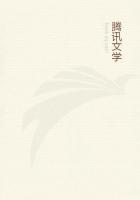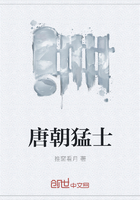I stopped him, praying him to consult with me what I ought to do in such a trying emergency. He would not listen to my entreaties, or even hear me describe the course I intended to pursue. I told him my abode was about to be surrounded; I imparted to him what the Queen had said to me about the contents of the portfolio. To all this he answered, "There it is; decide for yourself; I will have no hand in it." Upon that I remained a few seconds thinking, and my conduct was founded upon the following reasons. I spoke aloud, although to myself; I walked about the room with agitated steps; M. Gougenot was thunderstruck. "Yes," said I, "when we can no longer communicate with our King and receive his orders, however attached we may be to him, we can only serve him according to the best of our own judgment. The Queen said to me, 'This portfolio contains scarcely anything but documents of a most dangerous description in the event of a trial taking place, if it should fall into the hands of revolutionary persons.' She mentioned, too, a single document which would, under the same circumstances, be useful. It is my duty to interpret her words, and consider them as orders. She meant to say, 'You will save such a paper, you will destroy the rest if they are likely to be taken from you.' If it were not so, was there any occasion for her to enter into any detail as to what the portfolio contained? The order to keep it was sufficient. Probably it contains, moreover, the letters of that part of the family which has emigrated; there is nothing which may have been foreseen or decided upon that can be useful now; and there can be no political thread which has not been cut by the events of the 10th of August and the imprisonment of the King. My house is about to be surrounded; I cannot conceal anything of such bulk; I might, then, through want of foresight, give up that which would cause the condemnation of the King. Let us open the portfolio, save the document alluded to, and destroy the rest." I took a knife and cut open one side of the portfolio. I saw a great number of envelopes endorsed by the King's own hand. M. Gougenot found there the former seals of the King, [No doubt it was in order to have the ancient seals ready at a moment's notice, in case of a counter-revolution, that the Queen desired me not to quit the Tuileries. M. Gougenot threw the seals into the river, one from above the Pont Neuf, and the other from near the Pont Royal.--MADAME CAMPAN.] such as they were before the Assembly had changed the inscription. At this moment we heard a great noise; he agreed to tie up the portfolio, take it again under his cloak, and go to a safe place to execute what I had taken upon me to determine. He made me swear, by all I held most sacred, that I would affirm, under every possible emergency, that the course I was pursuing had not been dictated to me by anybody; and that, whatever might be the result, I would take all the credit or all the blame upon myself. I lifted up my hand and took the oath he required; he went out. Half an hour afterwards a great number of armed men came to my house; they placed sentinels at all the outlets; they broke open secretaires and closets of which they had not the keys; they 'searched the flower-pots and boxes; they examined the cellars; and the commandant repeatedly said, "Look particularly for papers." In the afternoon M.
Gougenot returned. He had still the seals of France about him, and he brought me a statement of all that he had burnt.















